We explore the life of Martin Luther King, his personality and education. In addition, we discuss his beliefs, work, and defining characteristics.
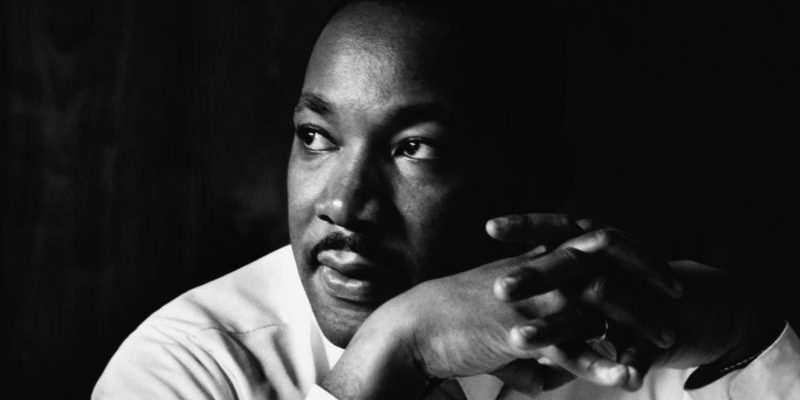
Who was Martin Luther King?
Martin Luther King Jr. was an American Baptist minister, renowned for his intense and unflagging work as a social activist for the rights of African American citizens during the segregationist era in the United States, as well as for his opposition to the Vietnam War and, broadly, against poverty.
His long career as a human and social rights activist in a historical backdrop of racial segregation and rejection of equality between blacks and whites in the United States has consecrated him as one of the heroes and martyrs of contemporary human history.
His leadership stands as an example to follow: his doctrine of nonviolent protest, his preaching of resistance and equality, and his undeniable ability to mobilize large masses of people. Martin Luther King was a key figure in the struggle for an egalitarian society at a time when blacks and whites had separate seats on buses.
Since 1986, there has been a holiday in his honor in the United States, as a way to consecrate his memory and keep his legacy alive.
- See also: Nelson Mandela
Biography of Martin Luther King
The son of a Baptist pastor and Alberta Williams King, a church organist, Martin Luther King Jr. was born on January 15, 1929 in Atlanta, United States.
His childhood was marked by racial segregation and religious influence (he was a member of the church choir). In 1853, he married Coretta Scott, and they had four children: Yolanda, Martin Luther III, Dexter, and Bernice.
Personality of Martin Luther King
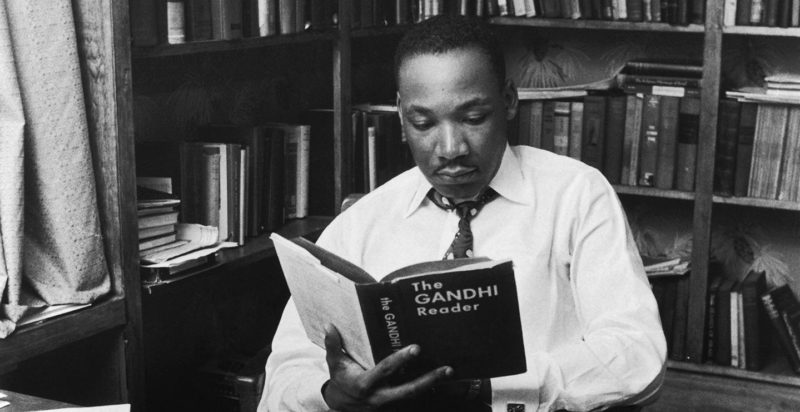
Martin Luther King had a hard life that forged a complex personality with a strong inclination towards academic pursuits. At the age of 15, he entered Morehouse College, an all-black college, skipping ninth and twelfth grades.
It is believed that the death of his grandmother would have had a profound impact on him, leading him to attempt suicide at the age of twelve. The rest of his life, however, was dedicated to the struggle for racial equality.
Religious education of Martin Luther King
He studied sociology and later pursued a bachelor's degree in theology, followed by a PhD in systematic theology from Boston University, from which he graduated in 1955. A year before, at just 25 years of age, he had become pastor of the Dexter Avenue Baptist Church in Montgomery.
Martin Luther King as an orator
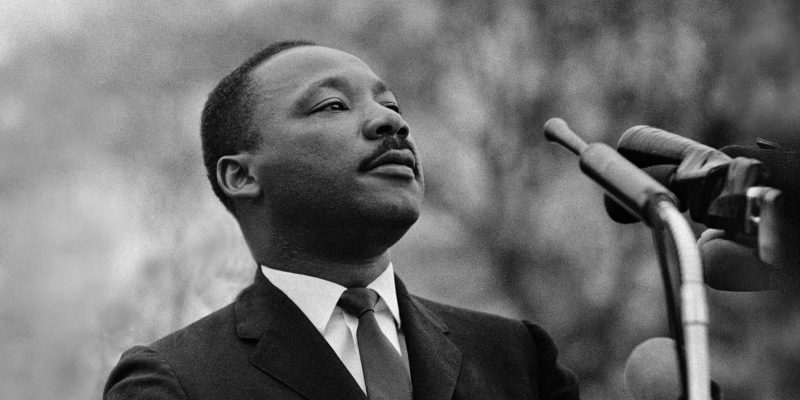
Martin Luther King is regarded as one of the greatest American orators, often compared to figures like Abraham Lincoln and John Fitzgerald Kennedy. His persuasion skill, enshrined in his "I have a dream" speech, has established it as one of the most iconic pieces in the struggle for equality in the Western world.
The central theme of his speeches was the mobilization of people, prompting them to pass from complaint to action, within their capabilities, in order to transform a reality of injustice and segregation.
Martin Luther King's achievements
Some of Martin Luther King's most well-known social activism includes:
- Montgomery bus boycott. In 1955, citizen Rosa Parks was arrested for violating racial segregation laws by refusing to surrender her seat to a white man on the bus. The response organized by King was a boycott of the bus line through a system of carpools. African Americans boycotters were often attacked by racist extremists throughout the 382-day boycott.
- Birmingham campaign. In the city of Birmingham, the black population faced double unemployment rates due to restrictions on hiring for manual jobs, and were excluded from voter registration (only 10% were registered). Attempts at black organization were met with bombings and violence, even in churches. King organized a series of protests on Easter 1963, demanding that stores serve all customers regardless of their color. As on many other occasions, King was arrested and, while in jail, he wrote his famous "Letter from Birmingham Jail".
- March on Washington. Along with civil and anti-racist organizations, King called for a March on Washington for Jobs and Freedom, whose specific demands were the end of racial segregation in schools, new civil rights legislation (ban on discrimination), and a two-dollar minimum wage for all workers without distinction, among others.
Values and virtues of Martin Luther King
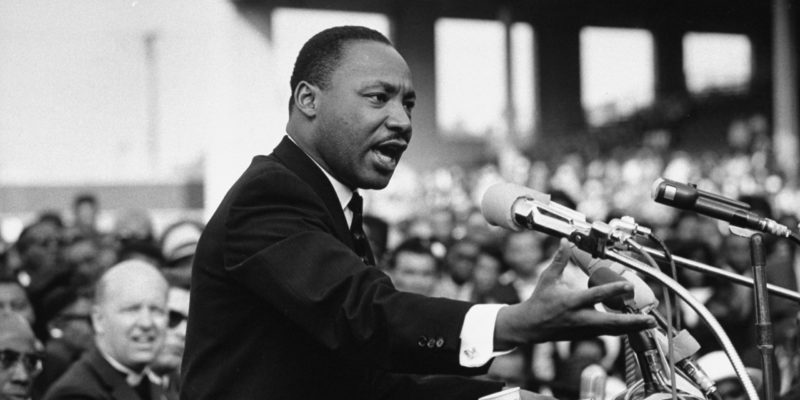
King's thought was grounded in the following principles:
- Civil disobedience and nonviolence. According to this principle, people have the legitimate right to disobey laws they consider unjust or illegal, through peaceful but constant and active methods.
- Equality, freedom, and racial pride. The defense of traditions and racial freedom called, above all, for fair and equal treatment for all.
- Pacifism and social commitment. The struggle for peace and social demands was key to King's activism, a cause which he believed everyone should embrace.
- Faith, spirituality, and love. Religious and moral teachings were essential to King's philosophy, for whom religious education was driven by universal love and faith.
Assassination of Martin Luther King
Martin Luther King's death stands as one of the most infamous assassinations of the 20th century, deemed a national tragedy. He was shot by a white segregationist on the balcony of the Lorraine Motel in Memphis, Tennessee, on April 4, 1968.
His death caused a wave of race riots throughout the US, resulting in several fatalities and requiring the intervention of the National Guard.
Martin Luther King's leadership
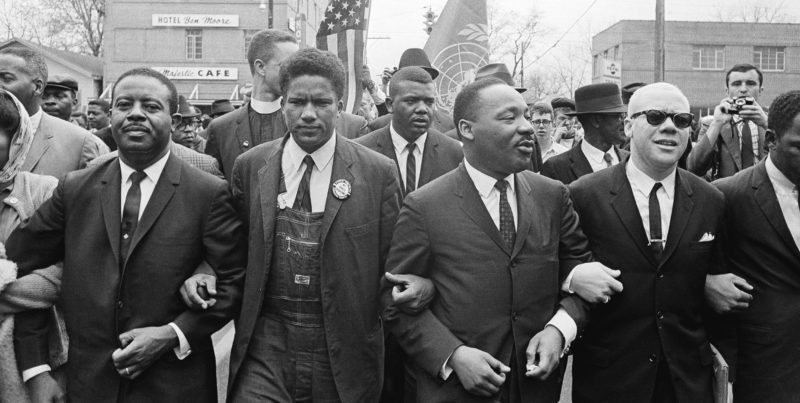
The unwavering leadership of Martin Luther King, who was followed by hundreds of thousands during his years of activism, was widely recognized. This was due to the fact that:
- He was imprisoned alongside his followers and did not want to receive any special treatment different from what they endured.
- He empowered people with a method of active yet peaceful protest, going beyond mere denunciation or complaint.
- He always remained coherent, consistent with his opposition to poverty, racial inequality, and war.
- He was a well-informed orator, who upheld clear values.
FBI's pursuit of Martin Luther King
FBI Director J. Edgar Hoover often labeled King as a "separatist, a hate-monger, and the most notorious liar in the country".
Not only did he slander King; he also investigated and surveilled him, accusing him of being a communist and an agitator funded by foreign powers. Hoover also disseminated reports to the press publishing alleged affairs from King's private life, aiming to tarnish and destroy his public image.
Recognition of Martin Luther King
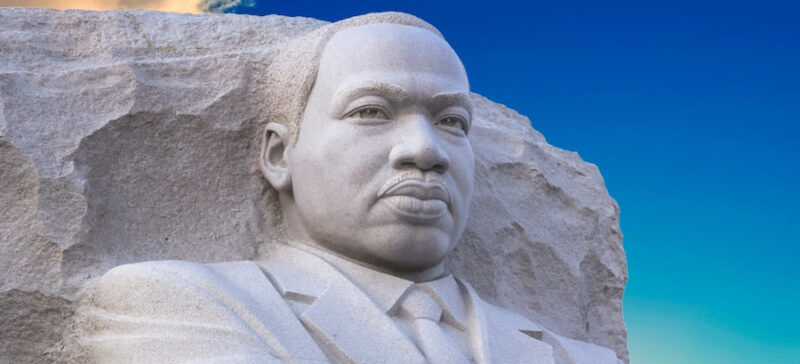
In 1964, Martin Luther King became the youngest man to receive the Nobel Peace Prize, in recognition of his nonviolent struggle against racial prejudice in the United States.
He was named Time Person of the Year in 1963, and received the American Liberties Medallion from the American Jewish Committee in 1965, as well as the Pacem in Terris Award.
In 1980, the neighborhood where he lived was declared a National Historic Site. Martin Luther King continues to be revered as a major historical figure, and his legacy remains one of the greatest in human history.
Explore next:
Was this information useful to you?
Yes NoThank you for visiting us :)